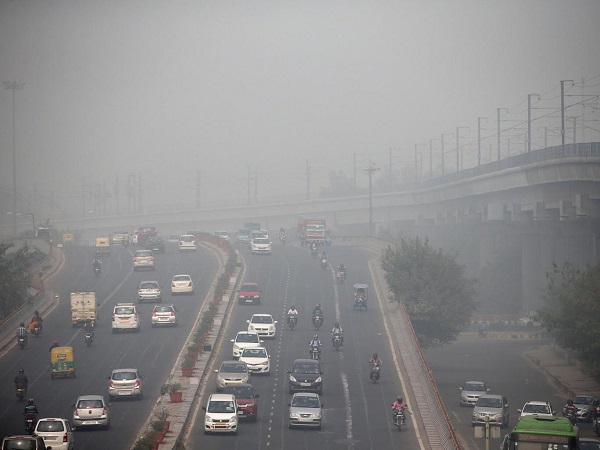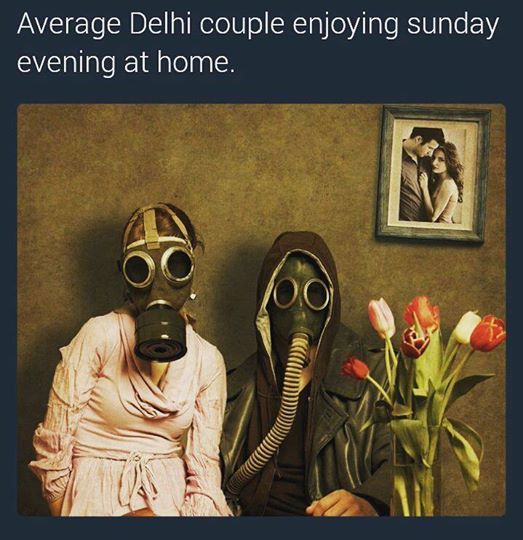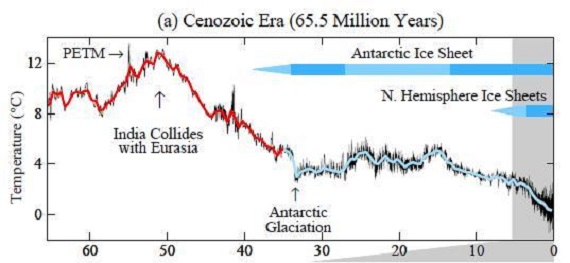1. Revival of pathogens as permafrost melts
As linked by zoot on the last CC, pathogens are emerging as the permafrost melts, some capable of becoming active after long periods of time, even millions of years. There has been one case of anthrax becoming active after being frozen in a dead reindeer for 75 years.
- One argument is that the risk from permafrost pathogens is inherently unknowable, so they should not overtly concern us. Instead, we should focus on more established threats from climate change. For instance, as Earth warms northern countries will become more susceptible to outbreaks of “southern” diseases like malaria, cholera and dengue fever, as these pathogens thrive at warmer temperatures.
The alternative perspective is that we should not ignore risks just because we cannot quantify them.
2. Climate change and health are inextricably linked
That is the claim made by Tedros Adhanom, special advisor to the Prime Minister of Ethiopia and aspirant to the position of WHO Director General.
The claims are a bit like motherhood and self-evident – changes in climate and especially extreme weather will affect millions, especially those who are already poor and vulnerable. Two specific claims are made:
- WHO estimates that 12.6 million people die each year as a result of living or working in an unhealthy environment, contributing to nearly one-quarter of deaths around the world.
- Similarly, a WHO assessment concluded that climate change is expected to cause approximately 250,000 additional deaths per year between 2030 and 2050.
3. Medical scientists report on the impact climate change is having on health
Medical scientists, not climate scientists, have investigated the issue in the USA.
- The study reports that if you live on the West Coast, wildfires, extreme temperatures, poorer air quality, extreme weather events, and agricultural risks are occurring. On the East Coast, you can add vector-borne diseases as a risk area. The central USA region is also similarly being affected.
A surprise, perhaps, was the threat of climate change to nutrition:
- Increases in carbon dioxide actually result in a lowered nutritional value of grown food such as wheat, rice, barley, and potatoes. This occurs because plants produce less protein and more sugars/starches in a carbon rich atmosphere. Plants also are less effective at taking in essential soil minerals.
Stanford Medicine produced a report titled Health: The Human Face of Climate Change, Perspective and Recommendations for the Next U.S. President. They suggested that a future administration:
- initiate a formal, decade-long emergency response to climate change, managed by the U.S. State Department, and frame climate change as a global health security issue — in other words, an acute public health threat to populations across the globe.
There’s more here, much more on what the president should do about climate change. Not a tweet in response so far, I understand.
4. India to make every single car electric by 2030
Delhi has particulate pollution 13 times the annual limit set by the WHO. Greenpeace found that as many as 2.3 million deaths occur every year due to air pollution in the country. India aims to turn the whole car fleet over to electric by 2030.
Here’s what it looks like when you can see:

I googled and found some more images, including this one:

5. US native coastal communities moving due to climate change
- An analysis the Center for Progressive Reform released May 3 shows that 17 U.S. communities have to relocate due to climate change, and most of them are Native American. Five are in the Lower 48, with the rest in Alaska.
Coastal communities are experiencing flooding, extreme weather, and coastal erosion at quicker rates than other parts of the country. In some places, like Alaskan Native villages or Louisiana’s islands, these impacts have rendered the areas uninhabitable.
6. Sea level change revisited
Scientists have had another go at analysing sea level change from 1993 to 2015. The good news is that the average has been 3.0 millimetres, not 3.3 as previously thought. Here’s the bad news:
- But finer-grained analysis reveals a more complex picture, and a disheartening one. Sea level rose 2.7 millimeters per year from 1993 to 2004. And it accelerated to 3.5 millimeters per year during 2004 to 2015—an increase of about 25 percent.
7. Clive Hamilton’s new book
Clive Hamilton, bless him, has written a new book – Defiant Earth: The fate of humans in the Anthropocene. I heard him talking to Phillip Adams.
He said that the last time CO2 levels were this high was 23 million years ago, when there was no ice at all on the planet. Best I know there has been some glaciation for the last 35 million years, but this graph is thereabouts:

His big point is that we’ve left the Holocene and entered the Anthropocene, with a fundamentally different relationship between humans and the planet. From a review:
- What does it mean to have arrived at this point, where human history and Earth history collide? Hamilton argues we need to rethink everything. The modern belief that we are free beings making our own future by taking control of our environment is now indefensible.
We have rendered the Earth more unpredictable and less controllable; a disobedient planet. And it’s too late to turn back the geological clock.
We must face the fact that humans are at the centre of the world, even if we must give up the idea we can control the planet. These truths call for a new kind of anthropocentrism, a philosophy by which we might use our power responsibly and find a way to live on a defiant Earth.


Four Corners tonight is on Power Failure, so I’ll be watching with interest.
This 3D printed solar panel was discussed on ABC Radio ( one of the stupid ones I can’t get podcasts of ).
Tech marches on, not sure about the efficiency but production cost said to be way down.
Next step, printed onto corrugated, recycled, plastic roof sheets with a cyclone rated, truss side, fixing system.
Thanks for the link Jumpy. That’s a truly exciting development.
No wucker zoot.
The audio of the interview with the Prof is in the ABC files but for some reason some of them ( even Fidler! ) I can’t access to re-listen or link to.
A Scientist, an Architect and an Economist walk into a bar.
Bartender says ” about fucking time you 3 got together “
Thanks, Jumpy, I did hear it on radio, but I forget which program.
I’ll include the link in the next CC.